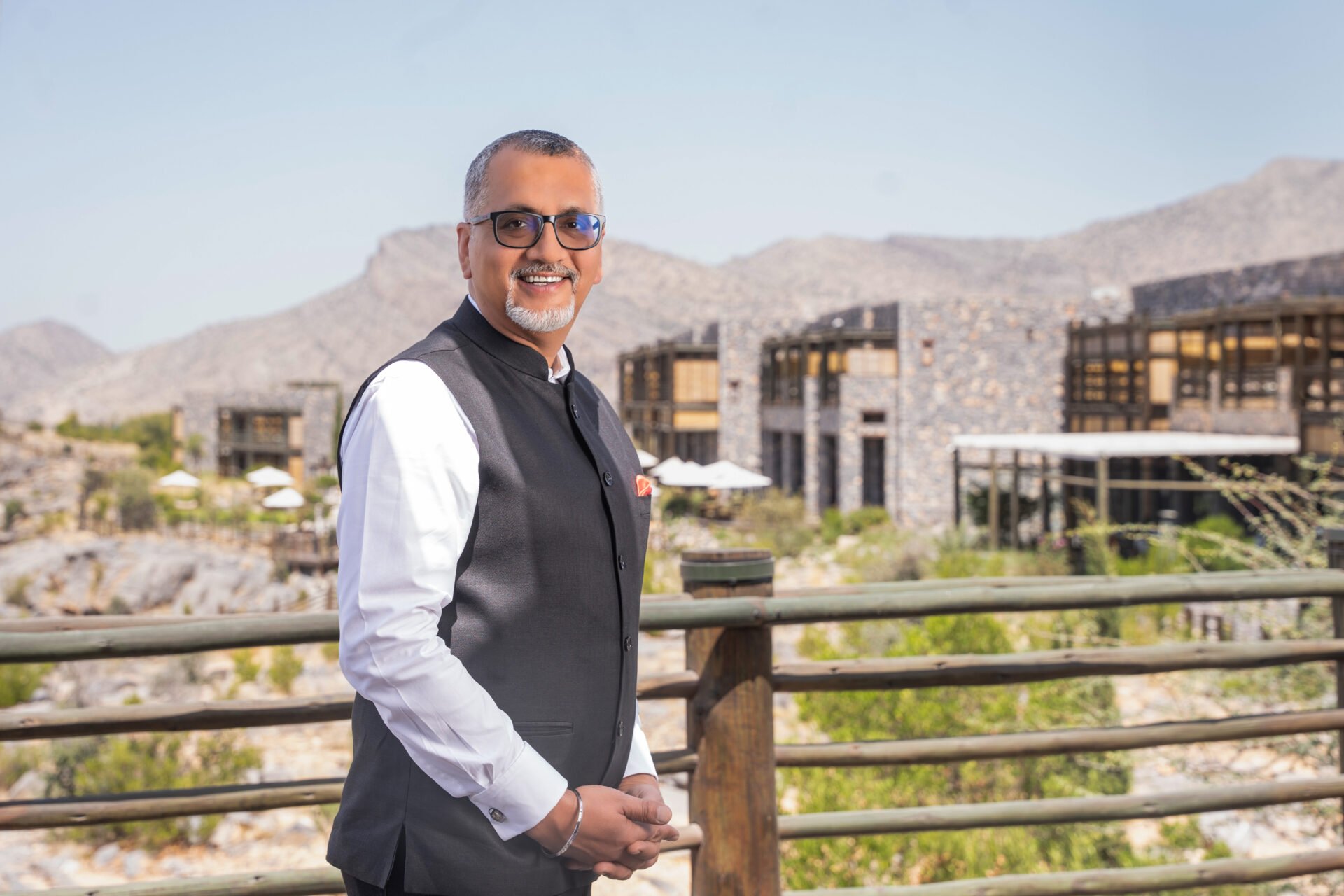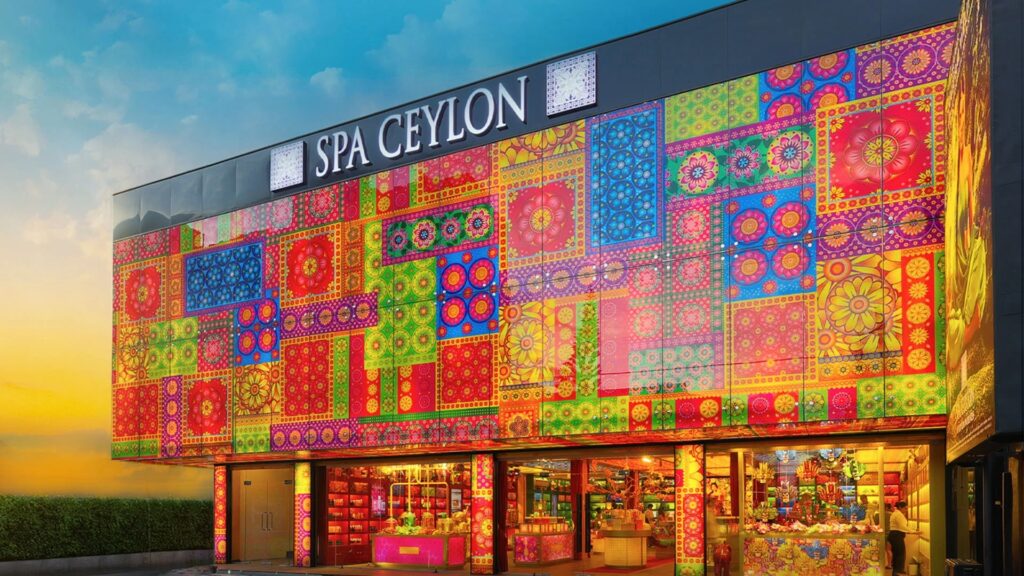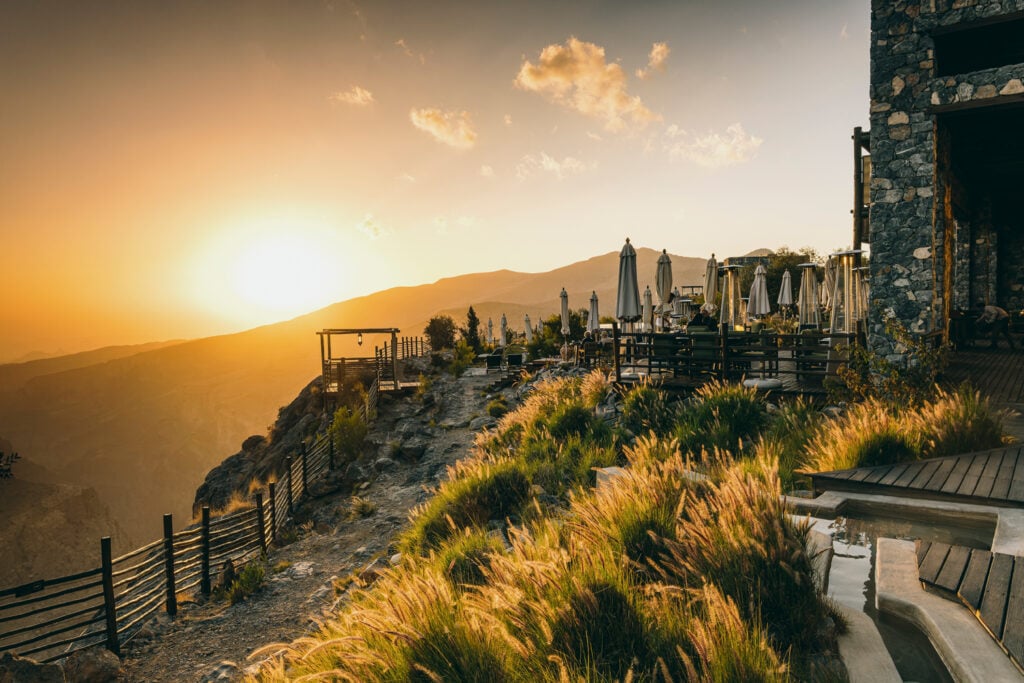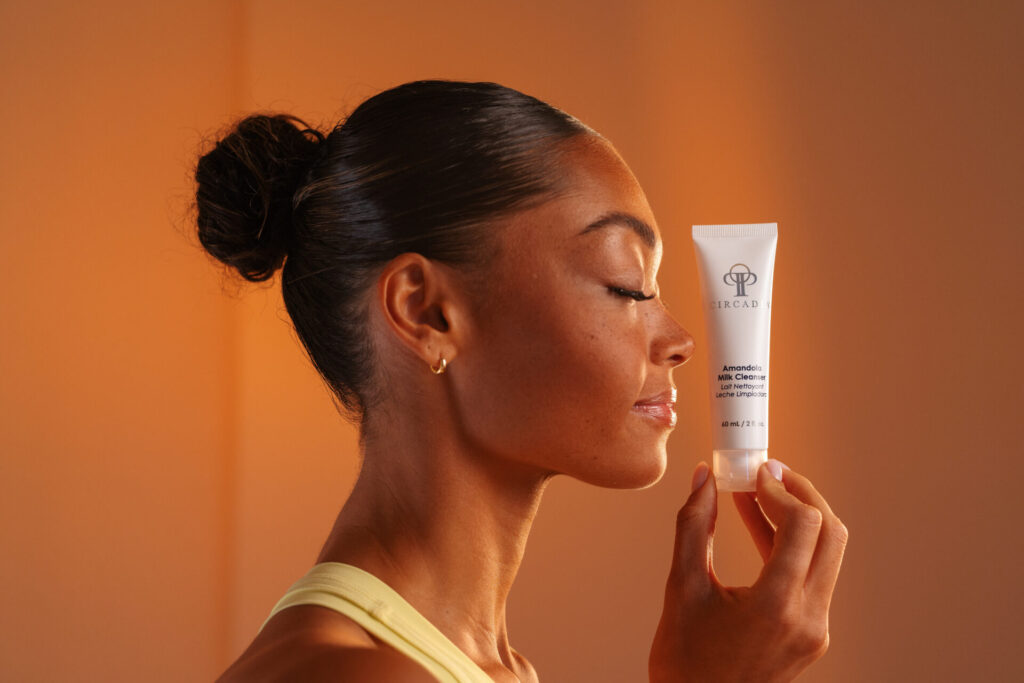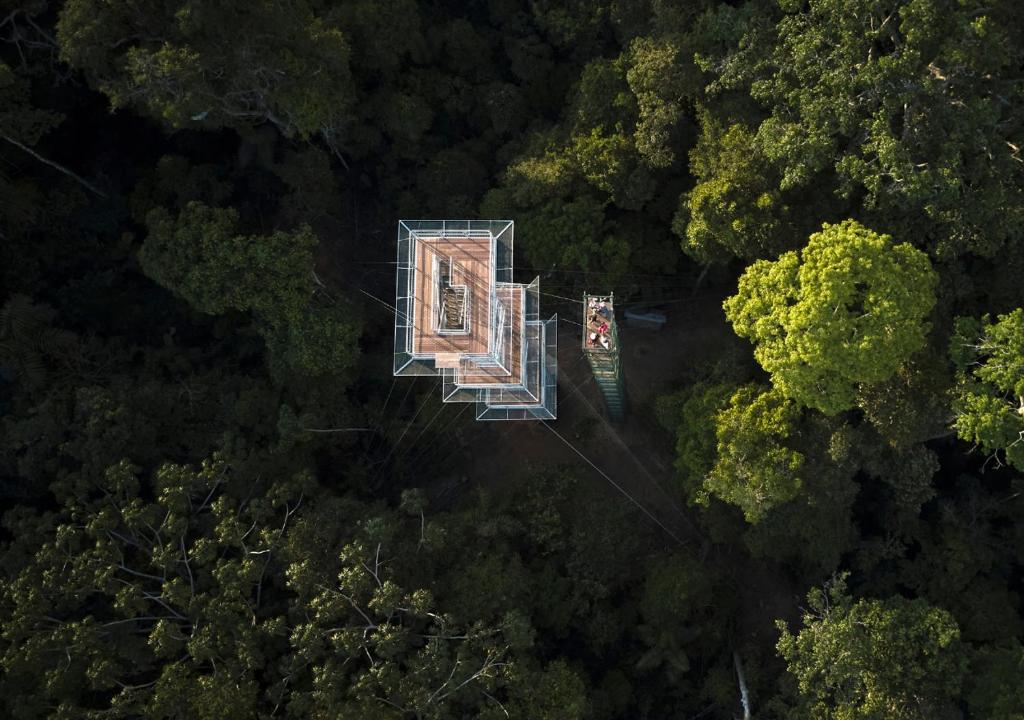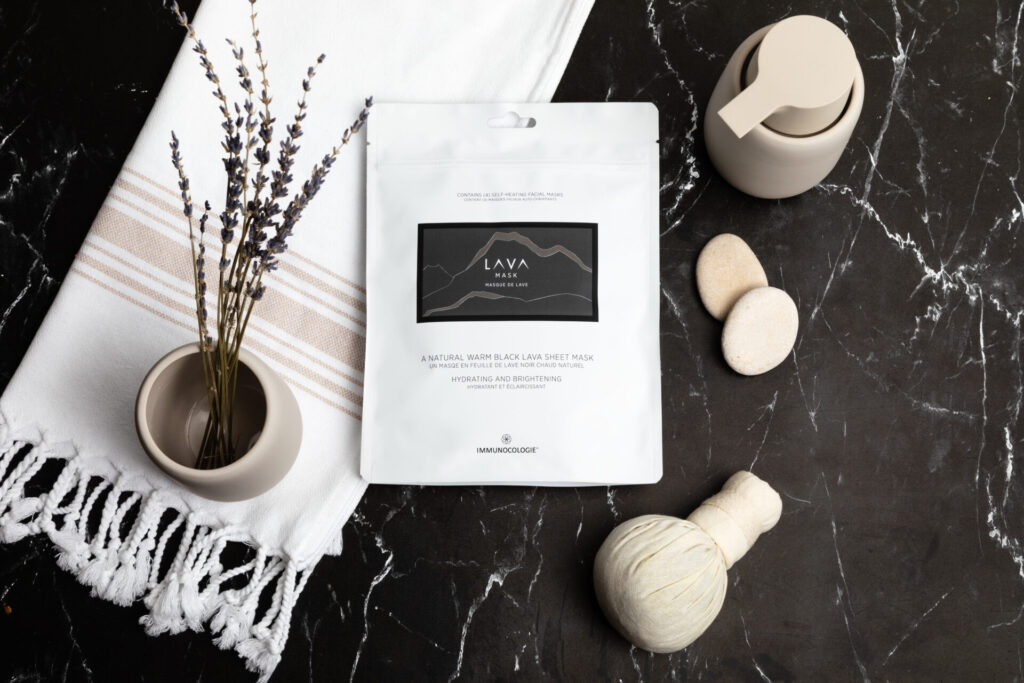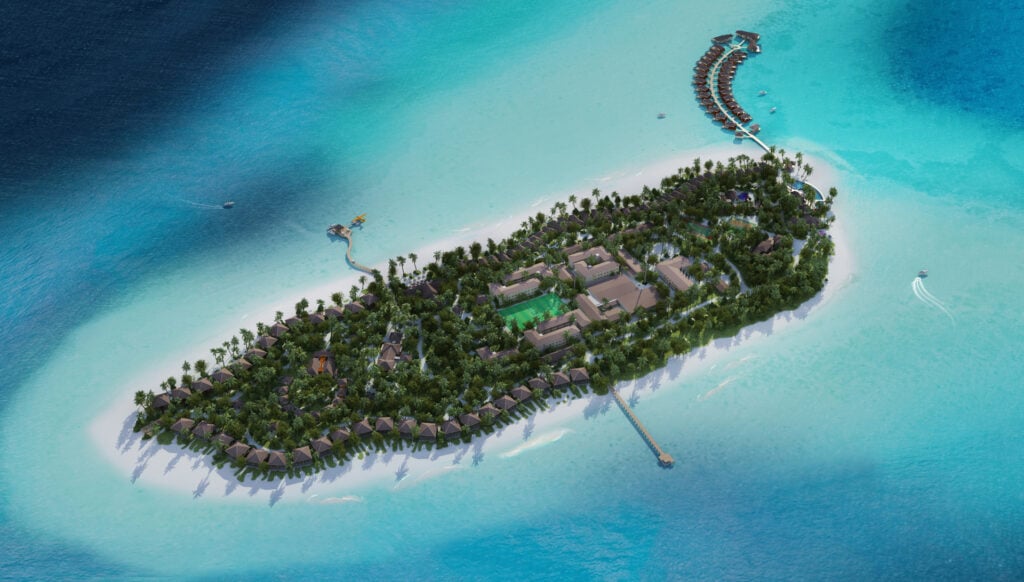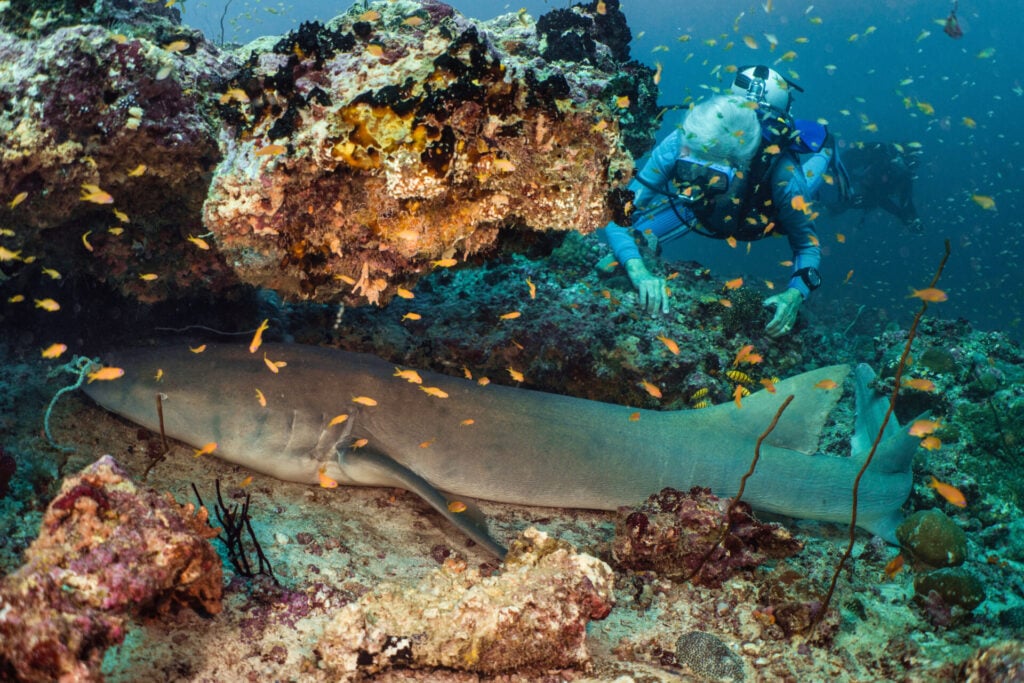Alila Jabal Akhdar opened just over a decade ago as a remote, rugged escape perched 2,000 metres above sea level in Oman’s Saiq Plateau. Breathtaking from the beginning, it has recently transformed into something far more purposeful.
Under the leadership of General Manager Puneet Singh, the resort has become a case study in real-world sustainability in the hospitality industry. What was once a luxury hideaway with a few ‘green touches’ has evolved into a regenerative retreat that grows its own food, rescues century-old trees, and inspires guests to connect with nature in meaningful ways.
The Ethicalist sat down with Puneet to find out how he and his team are turning Alila Jabal Akhdar into one of the most future-facing resorts in the region.
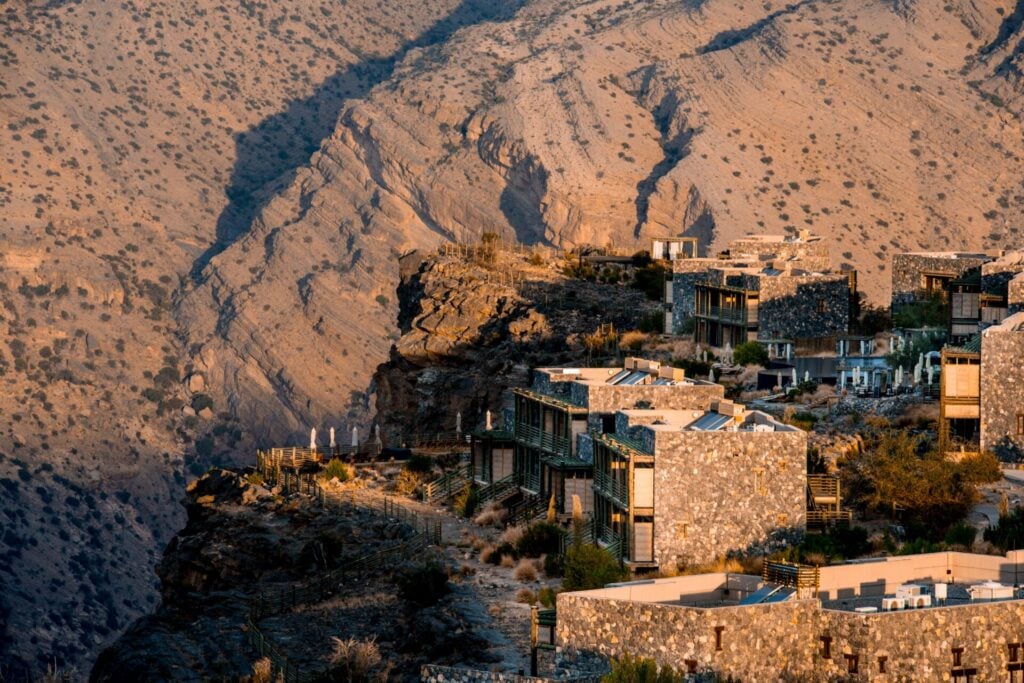
TE: You’ve turned a harsh mountain environment into a thriving farm-to-table operation. How did it all start?
Puneet Singh: When I first arrived, there were small organic initiatives happening, but they lacked heart and a cohesive vision. So we brought in new team members with hands-on farming backgrounds and engaged our ownership. In 2022, we began planting olive trees, figs, pomegranates, plums, and more. It was a challenge though because the soil here is shallow, just six inches of top soil before you hit granite, which makes planting incredibly tough. We had to jackhammer planting spaces without damaging the mountain terrain. Originally it was a one-year project, it’s now a four-year commitment. We’ve planted 1,000 trees already, and another 1,000 are on the way.
Roses were also a major focus due to their cultural significance here. We’ve planted over 450 bushes and have already begun producing our own rose water. As for rose oil, it takes around 50 kilos of petals to create just 10 millilitres of oil, which makes it unsustainable with our current scale.
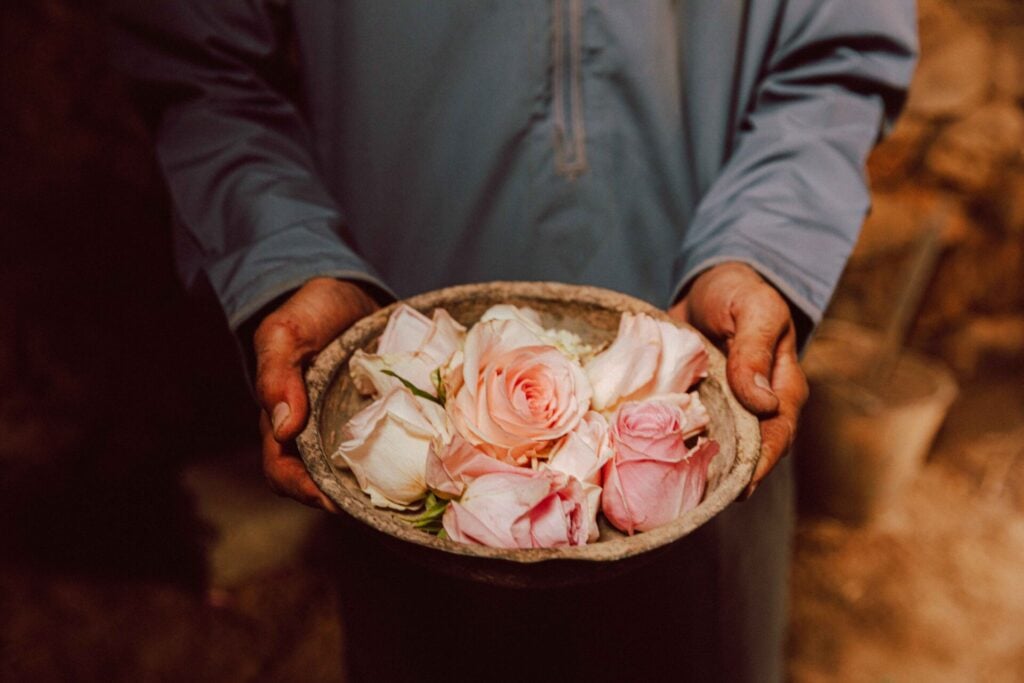
TE: You also built a hydroponic farm at Alila Jabal Akhdar. Why go that route?
Puneet Singh: Hydroponics allows us to grow food with far less water, which is crucial in this environment. We launched the project in 2023 and opened it to guests in February 2024. It’s fully operational and supplies our kitchen with heirloom tomatoes, strawberries, mint, and more, much of which is used in dishes prepared by our chef, who was brought in specifically for his experience working in kitchens where growing your own produce was part of daily life.
What makes this system particularly innovative is its energy-efficient cooling setup, which uses a combination of water and fans. We’re now preparing to power the entire hydroponic farm with solar energy, a move that, once authorised, will significantly reduce our footprint and set a new benchmark for off-grid agriculture in luxury hospitality in Oman.
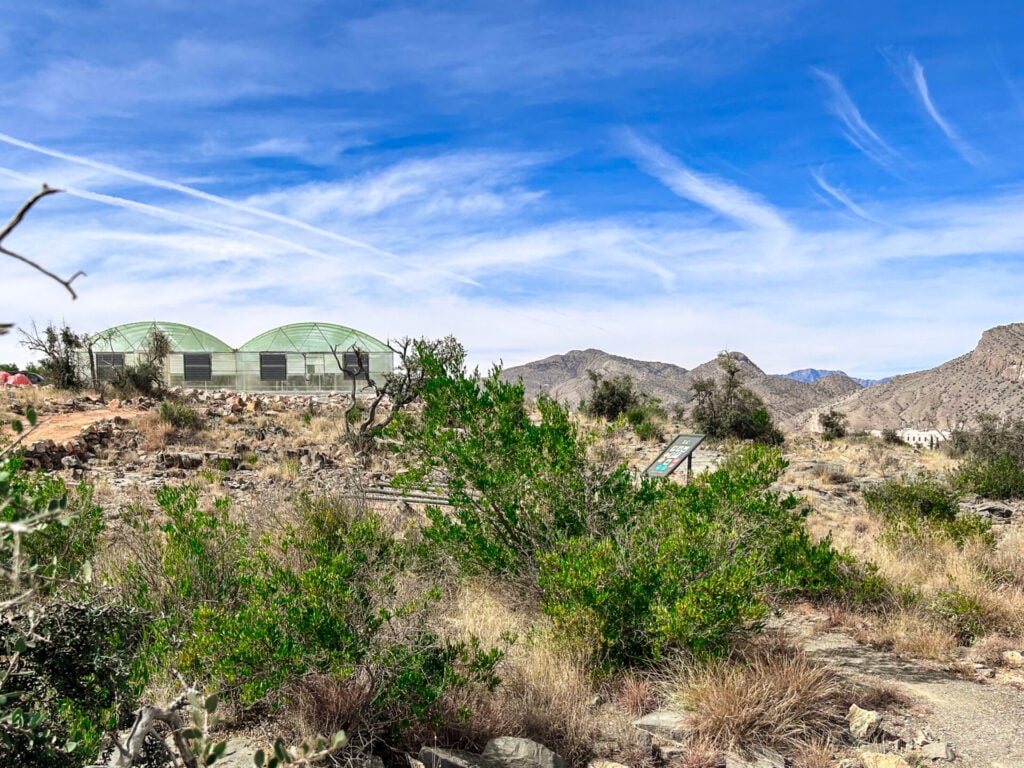
Beyond the hydroponics, we’ve also planted outdoor beds filled with herbs and edible plants — from peppermint and coriander and plans to grow lemongrass and rosemary to be used in spa treatments and seasonal menus. Guests can also get involved as part of our Butterfly Trail. They can harvest herbs and ask to have them made into tea, or even cook with them on-site. We wanted this to be an inclusive project, not just a functional one.
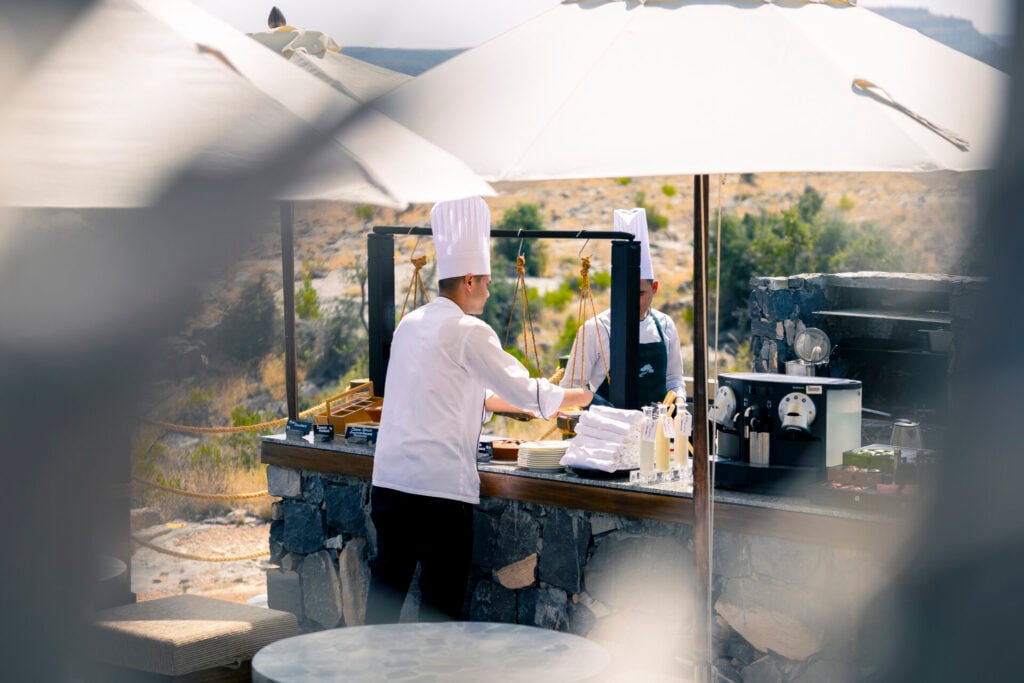
TE: What is the Butterfly Trail?
Puneet Singh: It’s a guided walk that takes guests through all of our sustainability initiatives — the hydroponics, composting areas, our organic gardens. We built it to show that it’s not all talk — it’s real. There are educational boards along the way that highlight local biodiversity, from insects and pollinators to birds and native plants. Guests can learn about the region’s natural history, even spotting fossils embedded in the mountain.
One of the most important features is the beekeeping, we made a conscious decision not to feed bees sugar water like many farms do. Instead, we focused first on planting flowering trees and plants to provide natural forage. That increased our honey yield while keeping the process authentic and environmentally sound. The trail also highlights our recycling and water conservation efforts, and the importance of working in harmony with the landscape.
TE: You’ve also been expanding your honey production, tell us about that.
Puneet Singh: We started with 12 hives and now have over 240. Last year our honey came mostly from olive and rose flowers; this year’s flavour profile will depend entirely on what’s blooming in our expanding landscape of flowering trees.
We’ve gone from producing 50 litres to 120 litres annually, and all of it is used onsite — served at breakfast, in desserts, or sold in our shop. What makes our beekeeping truly sustainable is the method we use for harvesting: the traditional centrifuge technique. Unlike cutting combs, which destroys part of the hive and forces bees to rebuild before they can begin storing food again, this method gently spins the honey out of the combs without damaging them. The bees can immediately return to work, and the hive remains intact.
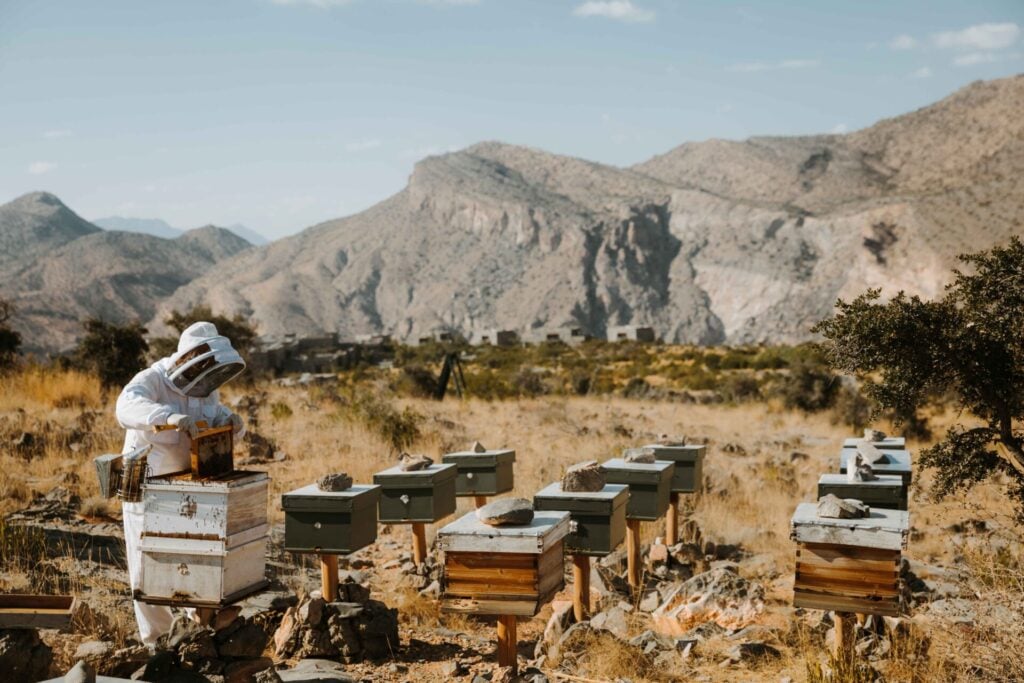
Guests are invited to take part in this process, and many are surprised by how much work and care goes into harvesting honey sustainably. Our next honey harvest is scheduled for June 7th, and guests are already booking their stays around it, just to experience the process firsthand.
TE: You launched a Tree Rescue Project, what inspired that?
Puneet Singh: We saw nearly 30 ancient juniper trees cut down to make way for irrigation on a nearby farm, trees that had stood for hundreds of years. We arrived too late to save them, and it was heartbreaking to witness. I couldn’t stop thinking about what we were losing. So we approached the Ministry of Environment and offered a solution: if any old trees were at risk of being removed for development, we’d collect and relocate them ourselves, at our own expense. So far, we’ve rescued four, which are now replanted on our property, and we’re prepared to save many more. It’s a quiet act of conservation, but one we feel deeply committed to.
TE: And upcycling seems to be a big part of your philosophy too?
Puneet Singh: Our team really takes the initiative here, it didn’t come from the top down. It began with a simple idea: turning old towels into beach bags, giving them a second life. From there, more ideas followed organically, driven by our team’s creativity. Now, discarded upholstery becomes staff shopping totes, worn linens are stitched into ‘giving bags’ for guests to donate clothes, and leftover materials are crafted into festive decorations. One of our most talked-about creations is a three-metre-tall Christmas tree made entirely from recycled linen. Even our plastic clean-up drives feed into this mindset. We recently built a Christmas tree using only discarded plastic bottles collected during one of our community clean-ups.
TE: How are you reducing your carbon footprint more broadly?
Puneet Singh: We consolidated deliveries by creating a warehouse in Muscat. Instead of 40 to 50 trucks a week, we now bring supplies up in just two. We’re also working on installing a 5,500 sq ft solar farm to power our hydroponic cooling systems and pool heating. Right now, 60 to 70 per cent of guest room water is already heated with solar energy. We also compost all our food waste. We produce up to 50kg of compost a day that we use to fertilise the landscaping.
The buildings themselves are also made from local stone and wood, which helps regulate temperature. Most guests in summer don’t need AC here, and in winter they don’t need heating because we followed the traditional Omani way of building. Also, because nearly all our rooms – the gym, swimming pool, guest rooms and restaurants – are all in the main buidling, we can close entire sections during off-peak times to conserve energy.
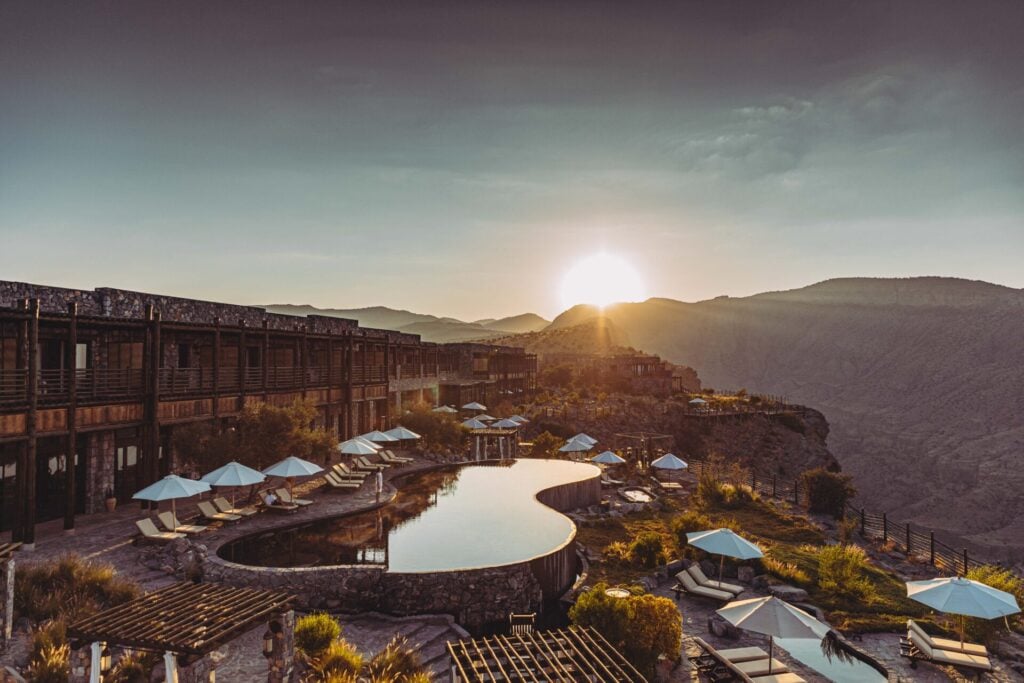
TE: What’s your approach to working with the local community?
Puneet Singh: We believe sustainability includes social sustainability. So we hire locally, and we buy what we don’t grow from nearby farms even if we could grow it ourselves. Supporting local producers keeps livelihoods alive and builds stronger community relationships. We also work with the Royal Farm to source seasonal items, and make sure our meat and dairy are sourced within 50km whenever possible. And when it comes to water, we’ve made a conscious decision not to touch the rainwater that flows through the property. We could easily collect enough water to harvest and use it for six months, but that would then mean that the farmers downstream would not have enough water.
TE: What kind of guest experiences have you created around this philosophy?
Puneet Singh: The ‘Harvest and Dine’ and honey harvest are just the start. We also invite guests to join the rose harvest, pick pomegranates, or forage for herbs they can use in mocktails or teas. Our spa now uses rose water we’ve produced on-site. Soon, we’ll add lemongrass and rosemary oil we’ve grown ourselves. We’re developing birdhouses for the property and planning picnic spots along the Butterfly Trail so guests can reconnect with nature in a meaningful way.
To book a stay or learn more visit hyatt.com

